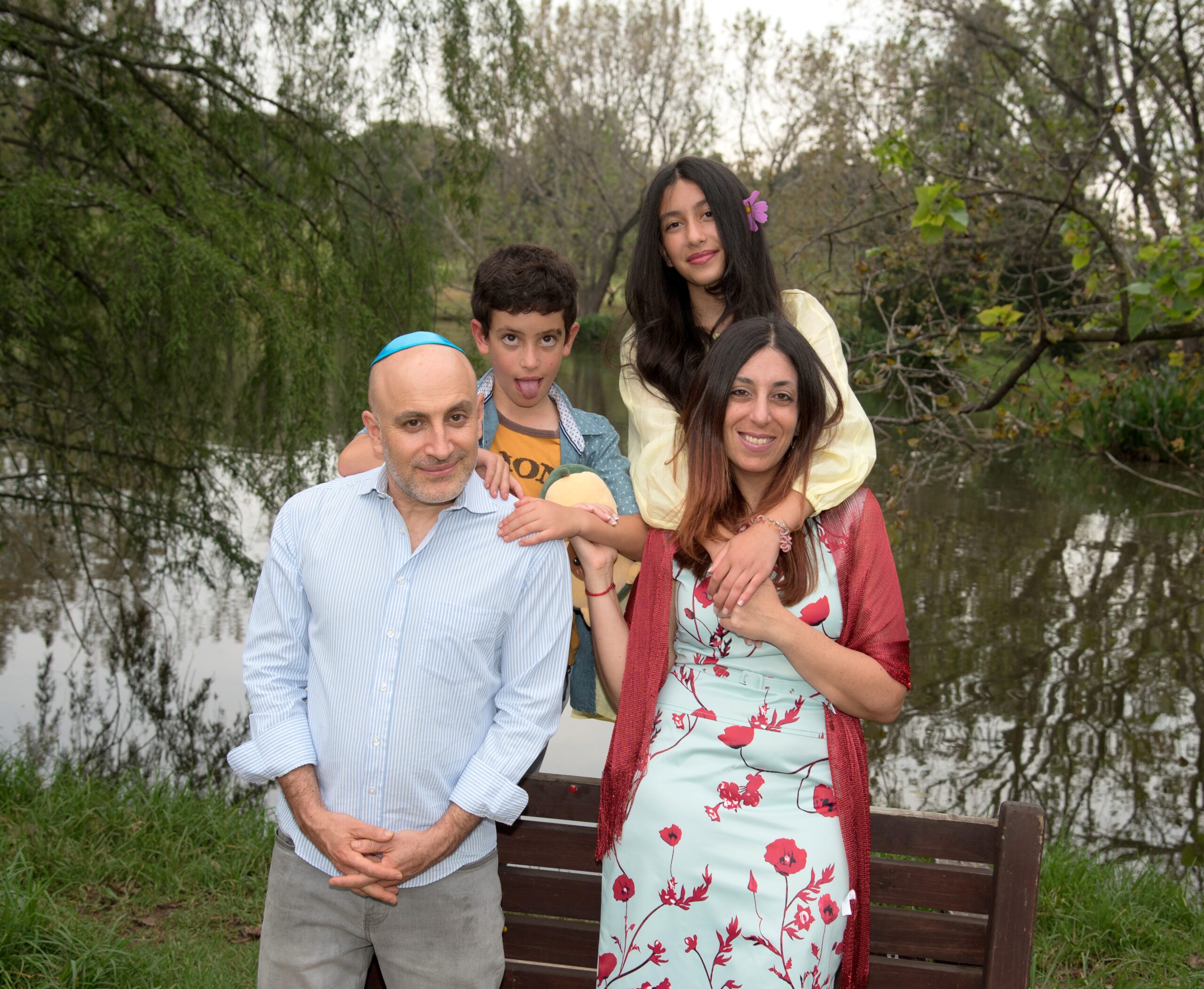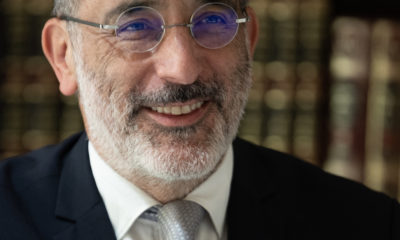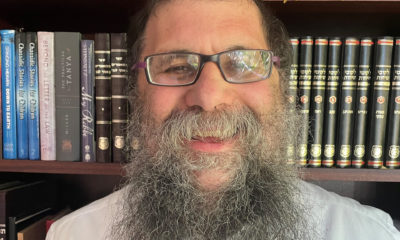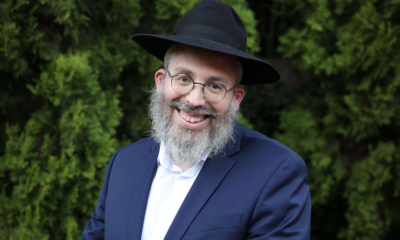
Religion

In Sydney or Joburg – exodus is an internal journey
When SA Jewish Report editor Peta Krost asked me to write an article for Pesach comparing our leaving South Africa for Australia to the Exodus, it gave me pause for thought. Certainly, South Africa isn’t Egypt and Sydney isn’t the promised land, regardless of how beautiful Bondi Beach is!
In fact, I miss South Africa terribly. I miss the roots of our community with its history in Lithuanian Jewry, I miss the unique way in which we interact with our difficult apartheid past and our post-apartheid, complicated present. I miss the fynbos and the cosmos, Delta Park, and Emmarentia Dam. I miss my family and friends.
Yet, South Africa isn’t the promised land either. The truth is, it’s rare that Egypt corresponds to an actual physical place. The experiences of being mired in and delivered from Egypt are subtle internal states. There have been some moments in history which probably felt as real as the actual moment of leaving Egypt and crossing the Sea of Reeds. The liberation of survivors from the concentration camps, the aliyot of Soviet Jewry to Israel, and perhaps a person who leaves an abusive relationship can be actual, physical moves that feel like yetziat Mitzrayim (exodus from Egypt).
But in our general lives, the big changes we long for aren’t about leaving one place for another but about changing our internal realities so that we aren’t held by the narrowness of our attitudes, our limiting ideas, and our moods.
This difference between stark and subtle redemption is captured in the eight-day Pesach journey. When G-d speaks to Moses at the burning bush, G-d promises a stark redemption, utter transformation. “I have come down to rescue them [the Israelites] from the Egyptians and to bring them out of that land to a good and spacious land, a land flowing with milk and honey.” G-d promises something powerfully transformative, being extracted from a devastating reality and taken to an Edenic idyll. Literally, the promise is located in actual places – Egypt is bad while Israel is good.
G-d develops this promise further in Chapter 6, when G-d promises that He/She will free us from Egypt, take us out, deliver us, and redeem us. Freedom, transportation, deliverance, and redemption are the four steps towards this uplift, and they mirror the four cups of wine in our seder. These four steps towards redemption are imbibed through the wine, literally changing our consciousness making us light headed through the evening, and giving us an as-if experience, that of being delivered from Egypt. On the night of the seder, we re-live and re-imagine a powerful form of redemption, that changes utterly everything.
This kind of miraculous change is uncommon. However this isn’t the only type of redemption offered on Pesach. After the heady high of the seder night which culminates in the splitting of the sea, on Shabbat of Pesach, we have another story of redemption. This time, unlike the transcendent splitting of the sea, we find ourselves in a natural setting, a garden, as we read Solomon’s Song of Songs. Here is a beautiful love story of adoration, admiration, sensuality, and longing. Yet, this love story doesn’t have a culmination like the kriat yam suf (splitting of the sea). Nor does it have a simple ending or arrival point. In fact, even the end of the love story is left unwritten. We still don’t know if the lovers will actually be “together forever” as we read of one lover hoping that the timing will be right for their union: “Hurry my beloved, swift as a gazelle or a young staff, to the hills of spices.” (Ch. 8, 14).
In one of Chagall’s paintings of Song of Songs, he depicts an ecstatic couple in mid-air, ensconced in love’s embrace, riding a unicorn, above an urban landscape. Renowned Jewish educator Erica Brown insightfully points out that Chagall situates his ecstatic lovers flying above the hum drum of daily reality. Chagall’s painting captures the elusiveness of ecstatic love. Sometimes we experience the ecstasy of another realm, but most times, we’re caught in the mundaneness of life – chores, duties, as well as anxieties, jealousies, and disappointments, to quote Hamlet, “The thousand natural shocks that flesh is heir to”.
If this “now you see me, now you don’t” is true for human love, it was believed by our rabbis also to be true about spiritual love: our relationship with G-d is about looking, finding, losing sight, and trying again.
We read Song of Songs on Pesach because most of the time, change and transformation isn’t the in-your-face variety of the Exodus, it’s the subtle shifts of the garden dance. Now it’s there, now it’s gone! If we had to characterise this love song, it would be about living in reality, among our life’s challenges, while always longing for something that will transform reality, with occasional hints of being lifted into the sky on a flying Pegasus.
As much as the seder reminds us of the miracle of redemption, the seder also has built into it this paradox of freedom and urbane reality. Many of the symbols of the seder reflect both slavery and freedom. Matzah is the bread of our affliction, and matzah is also the bread that symbolises our freedom. Charoset is the mortar that reminds us of how we had to make our own bricks in Egypt but Brown points out that the ingredients of haroset, from apples to cinnamon and wine, are found in Song of Songs. Haroset is a love paste! The very symbols that are used to capture freedom, love and transportation also point us towards slavery and vice versa. This is because most of the time uplift and drudgery, redemption and limitations walk very close to each other. As we read Song of Songs on Pesach, we remember that to be human is to be in the position of seeking and longing. We get a night (two in the diaspora) of being taken out of Egypt but most of the time, we live in the here and now and long for redemption
Every Pesach on leil seder, we remember a miraculous kind of deliverance, where the waters split and reality transformed forever. Those moments come now and then in a lifetime. A few days later, we read Song of Songs and remember that it’s not all or nothing. There are moments of dappled liberation every day. Sometimes we see it, sometimes we don’t. Even when we aren’t in the realm of the miraculous, to be human is to be seeking and longing and finding.
To return to that dilemma – Sydney and Johannesburg, Johannesburg and Sydney. Even as I continue to grieve the loss of my homeland, I will look at Song of Songs this year to remind myself that the perfect life isn’t to be found in either Sydney or Johannesburg. Rather life is about learning to live in a natural garden, seeking G-d’s face, and seeking the face of the other, looking to bring love and find love wherever we are.
Chag kasher ve’sameach!
- Adina Roth is head of Jewish Life at Emanuel School Sydney, and a third-year rabbinical student at Yeshivat Maharat in New York.










